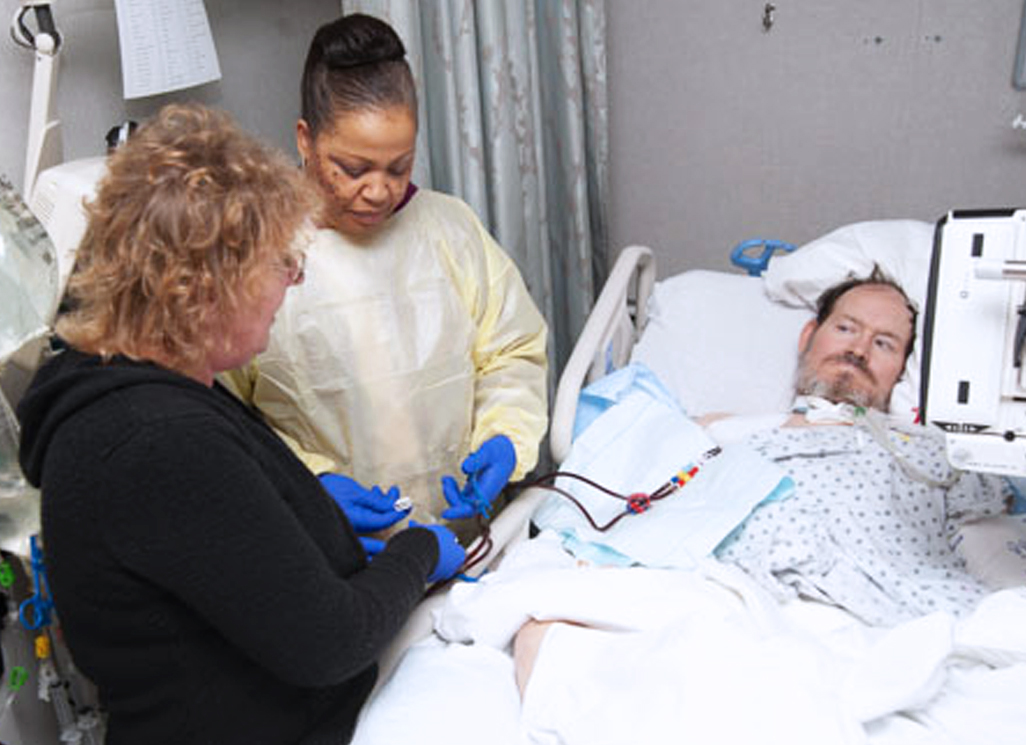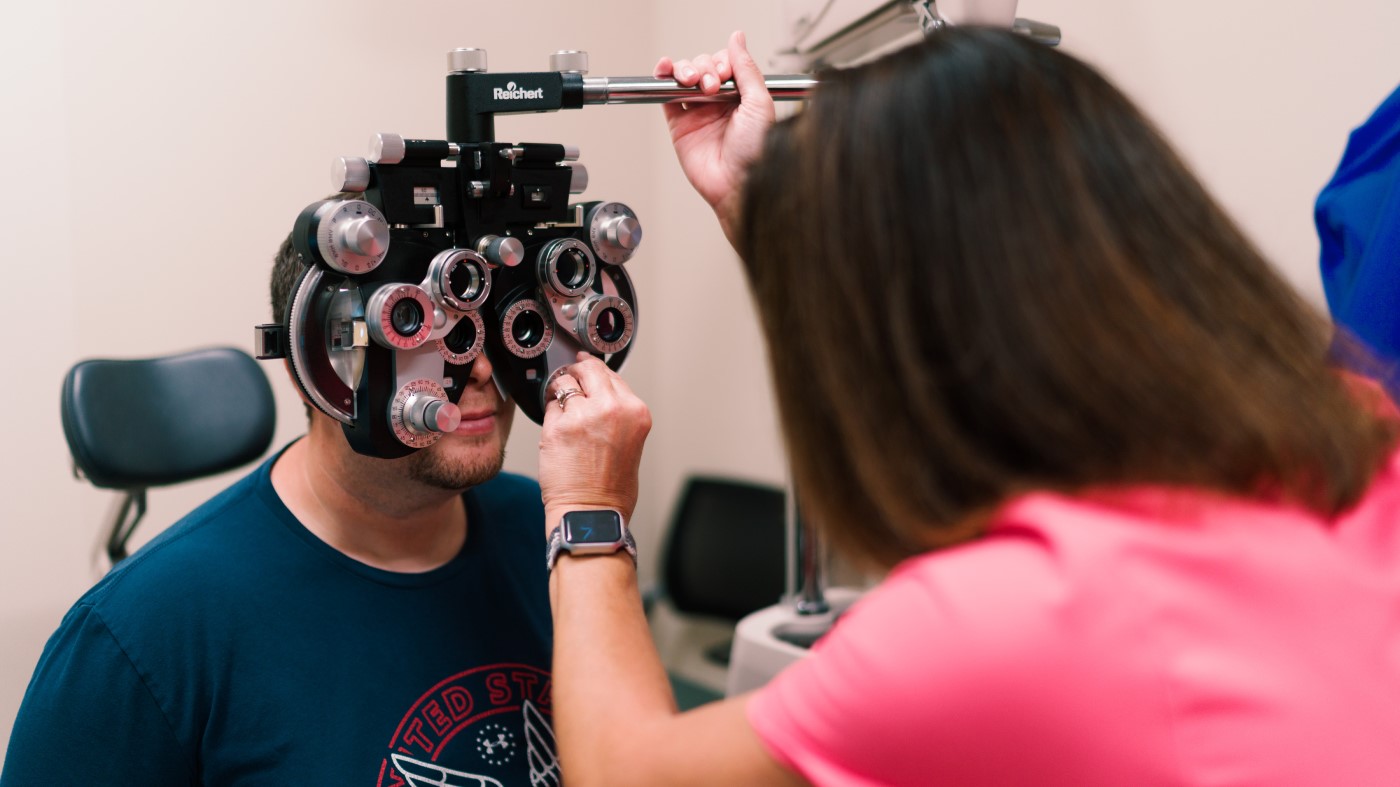Stricken with kidney failure brought on by ALS – a progressive neurodegenerative disease that affects voluntary muscle movements – Navy Veteran Richard Cole was told that his only option was relocating to a nursing home, where professionals could oversee his 24/7 health care needs. But he and his wife Yvette, who had no previous medical training, were determined to stop that from happening. So Yvette turned to the one person she thought might give them a fighting chance: her husband’s nurse, Pamela Wade.
Caring for Mr. Cole’s advanced ALS required hemodialysis, ventilators, and round-the-clock care, not typically-available options for in-home treatment. But after realizing how important it was to Richard that he go home, Nurse Wade began training his wife Yvette to care for her own husband on her own terms.
“There are certain criteria you have to pass to go home,” Wade said. “He didn’t fit any of them, but… I couldn’t say no.”
Two-and-a-half-years later, Yvette is still successfully managing her own husband’s treatment and the couple is doing great.
“Pam has been a godsend,” Yvette said. “I can’t say enough good things about her. I am just grateful she stepped in when she did.”
In working with the Nation’s bravest patients, VA understands the great strength and toll that their service sometimes takes. That’s why we do everything we can to empower our nurses, doctors, technicians and administrators to adapt protocols and go ‘above and beyond,’ to care for our patients as much on their own terms as possible.
To explore open opportunities and your own empowered career with VA, visit www.vacareers.va.gov
Topics in this story
More Stories
Whether it’s access to the great outdoors or a calmer pace in your everyday life, you can find it in rural VA communities around the country.
We offer some quick and easy steps to show you how to format a cover letter, and what information to include.
The eye care provided by ophthalmologists can make all the difference to our Veteran patients.





